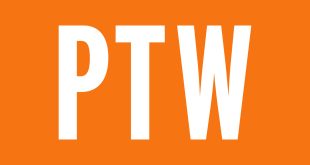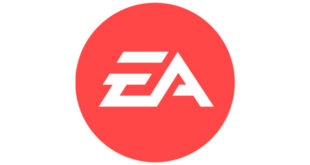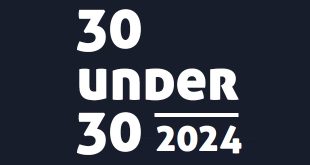by Vadim Andreev, CEO and co-founder of global distribution platform Rokky
 With Steam facing legal trouble for “ripping off 14m UK gamers”, could the distribution giant’s market dominance be shifting?
With Steam facing legal trouble for “ripping off 14m UK gamers”, could the distribution giant’s market dominance be shifting?
Valve Corporation, the owner of Steam, which is the largest digital distribution platform for PC games in the world, has found itself in hot water as it is accused of using its market dominance to overcharge 14 million people in the UK. With the company being sued for £656m and audience trust seemingly low, is now the time to consider alternatives when selling digital games?
Right now, Steam dominates the online gaming marketplace with an estimated 400 million games sold on the platform in 2023 and an annual gaming revenue of 8.56 billion dollars. As a result, it’s often the place publishers, distributors and developers use to provide their game keys to the masses. But with the storefront giant allegedly requiring publishers to sign up to price parity obligations, in addition to taking a 30% cut from revenue generated, people may be questioning their allegiance to Steam.
Between 2024 and 2027, the global revenue for digital video games is forecast to continuously increase by $80.9bn, an equivalent to 28.65%. By 2027 that brings an estimated reach of 363.19 billion US dollars, which is certainly not something to ignore.
When looking at Steam specifically, the platform’s gross merchandise value (GMV) in 2022 hit $10 billion and according to SimilarWeb data, the site sees 165M visitors a month. In comparison, G2A, Eneba, Kinguin and Gamivo had a GMV of $0.9M, 10% of Steam’s sales in 2022, and the sites together reach 30M visitors per month, 18% of what Steam is attracting.
So, if we put the legal troubles aside and focus on the stats above, why would you bother with marketplaces when Steam appears to dominate in terms of reach and GMV?
Well the first reason is that an 18% cut is a significant amount of people that you could be missing out on.
The second, and also the main reason, why you should bother with alternatives is that Steam takes a 30% share, whilst marketplaces provide much more flexible terms and could be highly profitable for the publisher.
There are, however, nuances and pitfalls that should be considered when working with marketplaces. It’s these difficulties and risks that often make these marketplaces and stores fall into a grey zone that publishers prefer not to dive into. That being said though, the opportunities shouldn’t be ignored.
Why publishers don’t trust marketplaces
Naturally, digital game distribution is much more cost effective than physical sales. However, that doesn’t mean care shouldn’t be taken when considering who’ll be distributing those important keys.
When selling digital games right now it may seem that there are two options, on big stores like Steam and on smaller marketplaces like G2A, Eneba or smaller stores like CDKeys. The latter offers publishers the opportunity to secure a higher revenue, but they can be trickier to control. This lack of control is often why publishers opt to sell on Steam and neglect to use these other marketplaces.
One of the main concerns when it comes to marketplaces is reselling. Resellers will buy games in the cheapest region and then resell that on to marketplaces in Europe. As a result, publishers lose out on potential revenue, which can be anywhere between 10% – 50%.
For example, new release Total War: Warhammer III has a lowest recorded price of €29.99 on Steam, but we can see the actual price on the marketplace, using Kinguin as an example, being €19.80.

So, how can this price exist? If we assume that Kinguin’s revenue share is 10%, that means the seller will get €17.82.

If we calculate the price that the publisher can receive here, it would be:
- Promo SRP = €29.99
- VAT = 20%
- NET SRP = €29.99 / 1.2 = €24.99
When we look at revenue share between publisher and distributor, we know that Steam takes 30% if the game earns less than $5million and 20% if it earns more. So distributor share could be anywhere between 5% and 30%, but can’t be more than 30%.
At its lowest, the publisher will receive 70% of €24.99, bringing the value down to €17.49 per game sold through the distribution channel.
Now that we’ve looked at reselling and promotions, let’s take a look at regional differences.
If we still take the example of Total War: Warhammer III, a seller could buy the new release from somewhere like Indonesia. Resellers often use different workarounds and purchase games from regional resellers or stores, which would look like:
- Converting Indonesian Rupiah to EUR would have a new price of €18.56
- Tax = 11%
- NET SRP = €18.56 / 1.11 = €16.72
- Publisher receives = €11.70
In this case specifically, the seller can make up to €6.12 and as a result the publisher believes the game was sold in Indonesia when in reality, the EU customer will buy the game at a lower price. So really, the publisher could potentially earn up to €5.69 more for their game.
It’s not only differing regional currencies that resellers exploit. Often resellers will use various workarounds to purchase games in bulk, such as purchasing during promotions, and then sell the games on marketplaces.
As an example GTA5, which is still in the top-10 most played games, has a current official price of €29.99 but there was a promotion of 77% to bring the retail price down to €9.24.

As a result when we take a look at Eneba, the price is €12.35, a 58% decrease in the official price. This is very likely to mean that sellers purchased the keys in bulk from somewhere during the promotion period and have then resold them on the marketplaces once that promotion period had finished.

This creates problems as it consistently lowers the sale price of the game and, if during the next promotion the discount is higher than the price they originally bought the games for, they won’t be able to sell the remaining keys. This leads to key blocks by publishers and means publishers need to find a way to refund it since they have already received the funds from the sales.
Since resellers are also buying games in bulk to sell them later, this results in key activations happening much later than the purchase date. Steam has implemented a limit of issuing no more than 5,000 keys, and it won’t provide a new batch of keys if the previous batch has been sold but not yet activated. This is a great step forward, but not something all marketplaces adhere to and very often it only reduces the publishers’ revenue whilst strengthening Steam’s monopoly
However, it isn’t all doom and gloom. Yes, there are difficulties when it comes to working with smaller marketplaces. But the extra work is worth the reward given that they can increase profit margins, build greater community rapport, and bring your game to an audience truly interested in playing the game and not just hoarding the keys. It’s an avenue that should be utilised when done correctly.
So, are marketplaces really worth it?
When looking at the extra things to consider with marketplaces it may seem like a headache that you actively want to avoid. But working with marketplaces can increase both your audience and sales between 10-20%, whilst cutting out that 30% fee from Steam.
Through looking at live statistics and data on different titles, we can see the disadvantages of ignoring alternative stores. Total War: Warhammer III is sold on marketplaces, and based on the revenue from these alternative marketplaces, we can see that the game has been sold in several tens of thousand copies through using this channel. Most likely, with each copy of the game sold, the publisher missed out on €6.12, which could have brought Sega an additional €61,200 for every 10,000 copies. Therefore, it would be worth Sega revisiting its policy regarding marketplaces and considering its approach to this channel in future.
Both regional price policy violation and promotion periods violations are real issues with resellers on some marketplaces, as demonstrated with both Total War: Warhammer III and GTA5. However, this can all be avoided if you use marketplaces as a separate market and utilize the expertise of an experienced partner, such as Rokky, which can avoid the grey area of marketplaces and create official partnerships that you can trust.
For more information on how to make the most of the digital distribution for your next game, visit https://rokky.io.

 MCV/DEVELOP News, events, research and jobs from the games industry
MCV/DEVELOP News, events, research and jobs from the games industry




